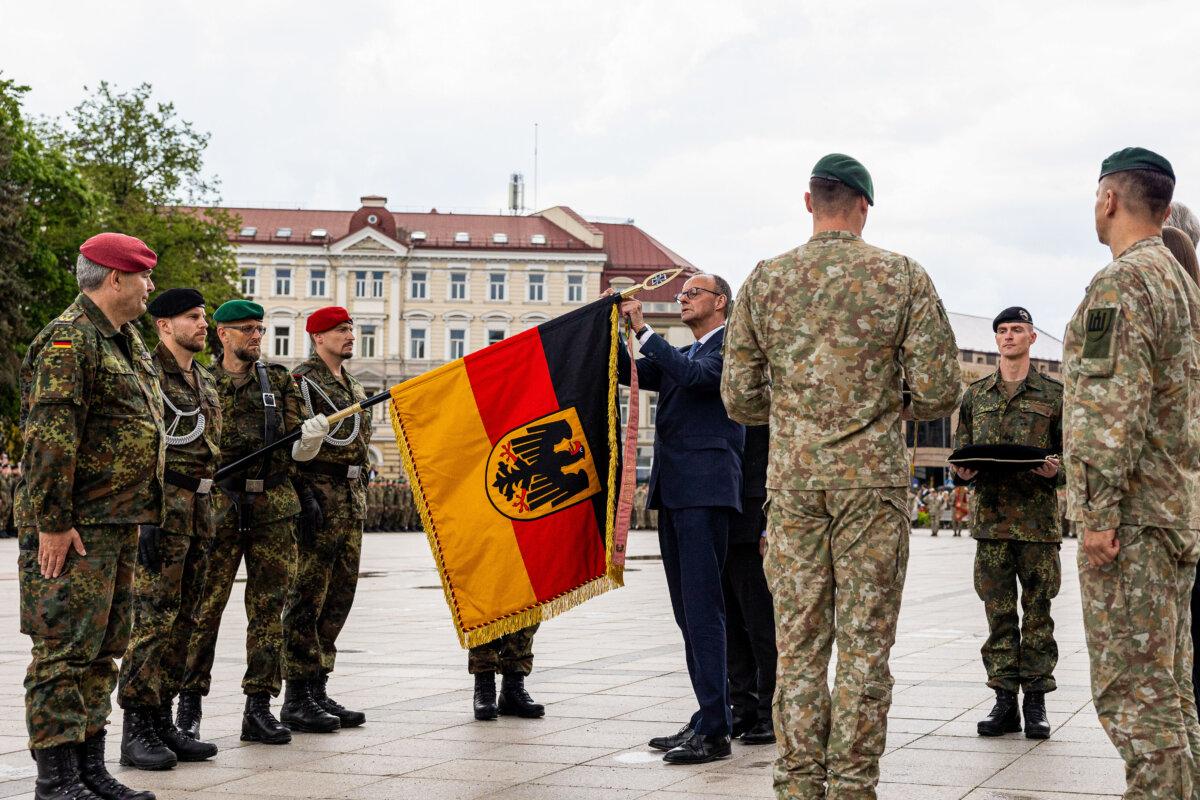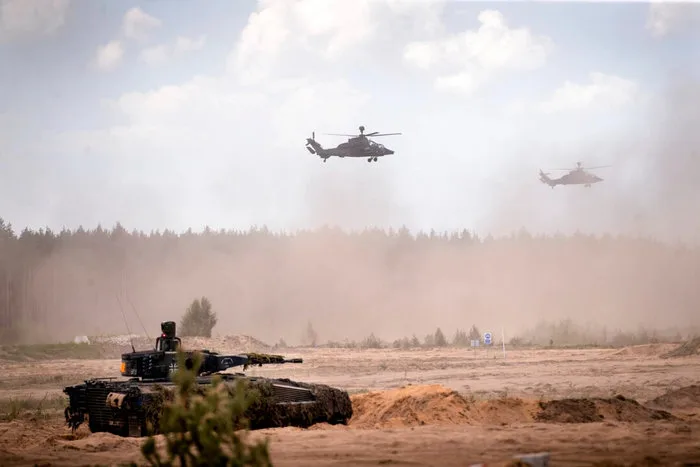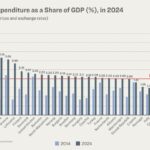By Victoria Friedman
Germany’s governing coalition partners announced new rules on military service in a joint statement to the media on Nov. 13, aiming to boost the country’s armed forces to 270,000 by 2035.
The rules would establish a hybrid system centered on voluntary service, with the option of a mandatory call-up if necessary.
The plans would also see all 18-year-olds receive a questionnaire about their interest in serving in the German armed forces, known as the Bundeswehr. Responding to the questionnaire will be mandatory for men, but not for women.
The measures, agreed upon by the conservative Christian Democratic Union (CDU) and the Christian Social Union, as well as the center-left Social Democratic Party (SPD), are expected to take effect at the start of next year and will initially target those born on or after Jan. 1, 2008.
The German government hopes to boost the size of its armed forces to 270,000 men and women by 2035. Currently, there are just over 182,000 uniformed military personnel in the German military.
The drive will initially be voluntary, but coalition partners said that a mandatory call-up may have to be considered at a later date if voluntary recruitment does not yield enough recruits to keep Germany on track to reach its long-term target.
The coalition has attempted to make the offer look financially attractive, stating that those who volunteer will receive a monthly salary of 2,600 euros ($3,028) and potentially a subsidy for getting a driver’s licence, either for a car or truck.
The Ministry of Defense will be required to deliver a six-monthly report to the Bundestag, Germany’s parliament, on the recruitment process, so lawmakers can better understand where the country stands in terms of the growth of the armed services and Germany’s ability to defend itself.
Conscription an Option
“We will make voluntariness more attractive. We want to inspire as many young people as possible for service,” Jens Spahn, the parliamentary leader of Chancellor Friedrich Merz’s CDU, told reporters.
“If, in the end, there are not enough volunteers, a compulsory obligation will be needed.”
Pressed by a reporter on how far a recruitment target would have to be missed for potential conscription to be triggered, Spahn said he could not give an answer at that time.
“If we do not achieve that target, then the German Bundestag will start a debate about it, and legislation will follow on obligatory elements. I cannot now tell you exactly on what number that would happen, but that must, of course, also be decided politically,” Spahn said.
“If we continuously do not achieve the set goal, there will, automatically, be a public, societal, and political debate about the obligation to serve and that is then, from our point of view, the path of the needs-based obligation.”

The coalition partners sought to quell concerns that conscription was something potentially imminent, saying that they were confident the target could be met by voluntary means.
Matthias Miersch, the SPD’s parliamentary group leader, said he was certain Germany could find enough volunteers, calling the new model “an offer,” not an obligation.
Similarly, Boris Pistorius, the defense minister and member of the SPD, said: “I am very, very confident that all this will succeed. I have said this several times. Other European countries, especially in the north [of Europe], show that the principle of voluntariness combined with attractiveness works. And I expect exactly the same here.”
Current Threats to NATO
The push to grow Germany’s army comes in the context of conflict on Europe’s doorstep, with the Russia-Ukraine war moving into its fourth year.
“We want Germany to be able to defend itself, because it must be able to defend itself in these times,” Spahn said, raising the issue of current threats to NATO, including from Russia.
NATO Secretary-General Mark Rutte said that he was pleased that Germany’s coalition had agreed on plans to grow its armed forces.
“Each country decides for themselves how to get enough men and women into the military, but I’m very happy to hear that the coalition in Germany has now agreed on a way forward, and that is very important,” Rutte told reporters during a visit to Allied Joint Force Command Brunssum in the Netherlands.
“It’s up to each nation how to deal with this, but obviously, as NATO secretary-general, I’m always happy when decisions are taken to get more people involved in our military.”





